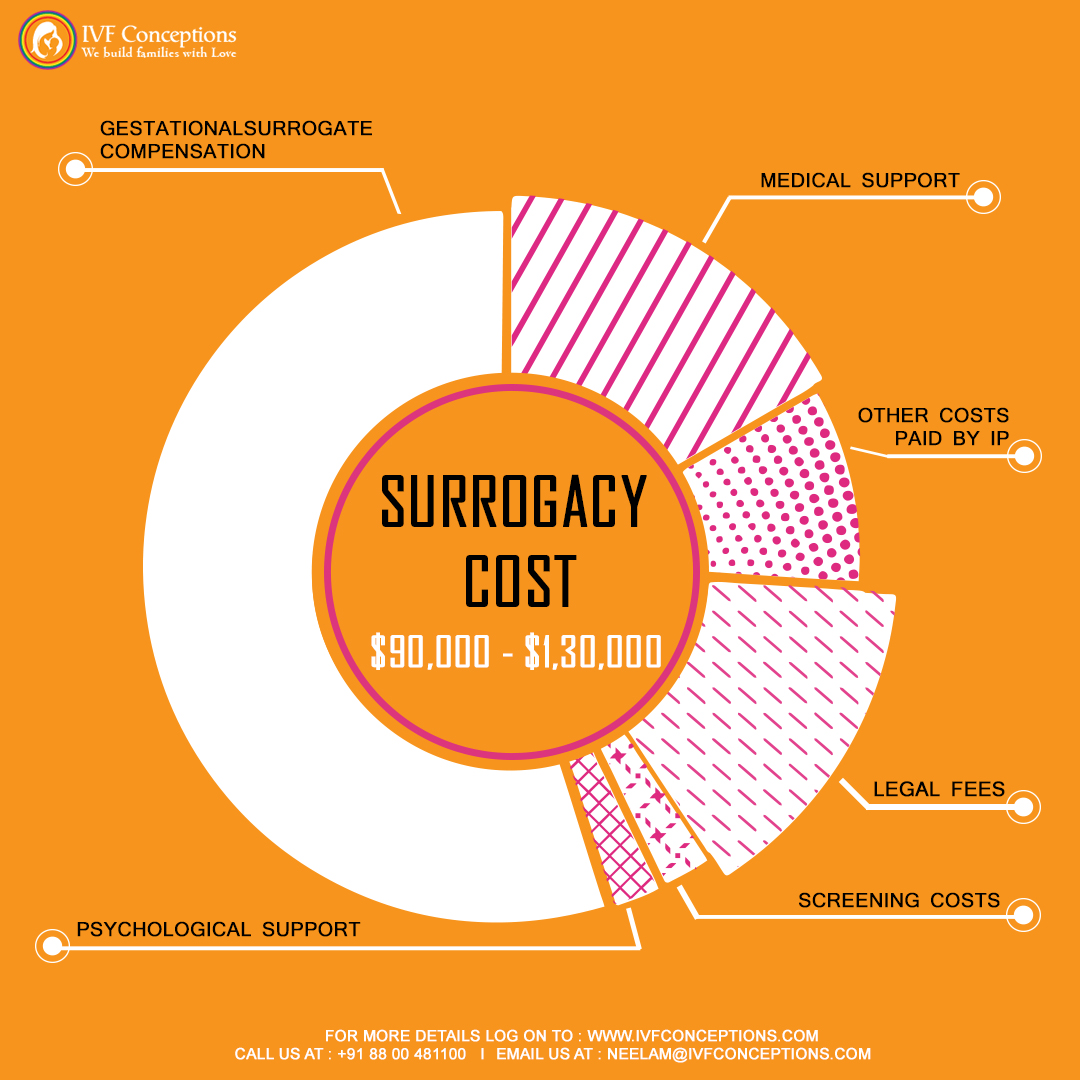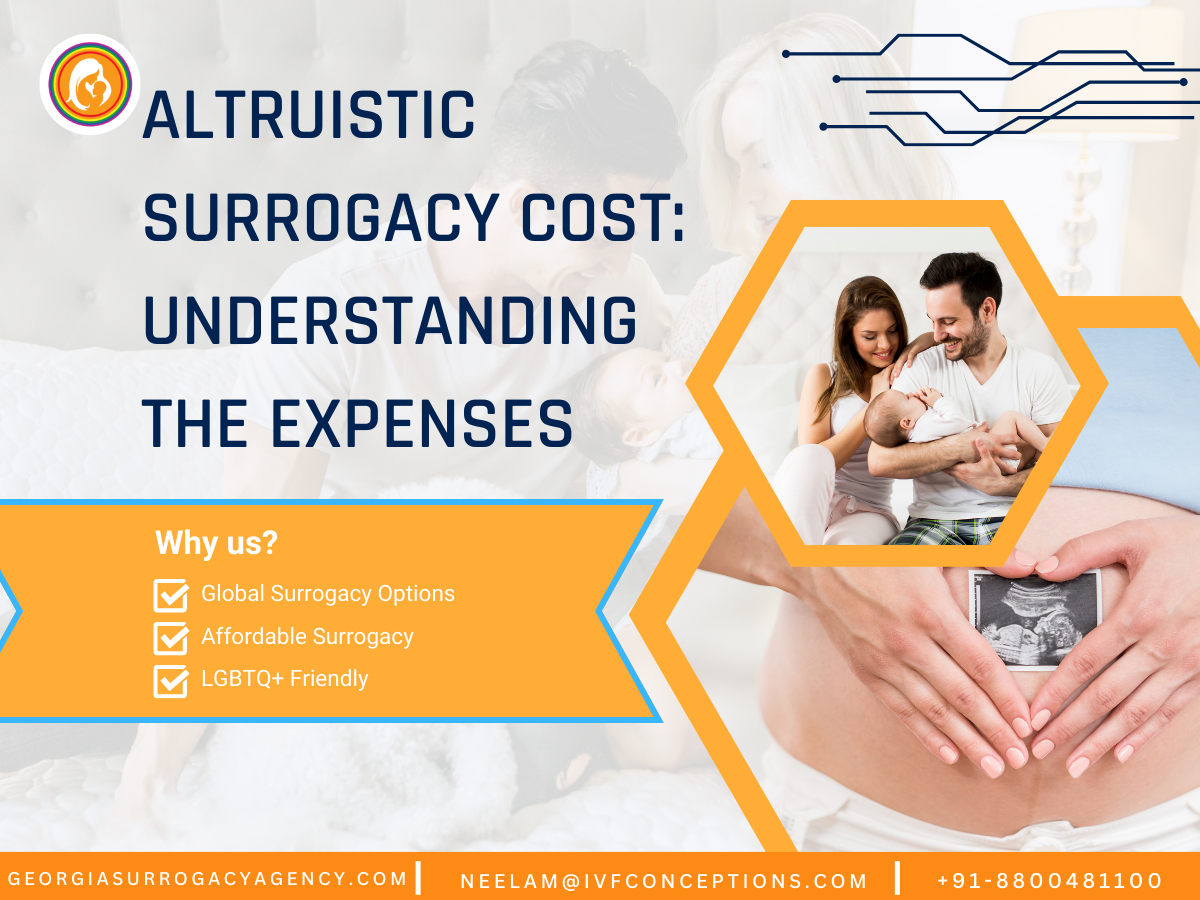Altruistic Surrogacy Cost: Understanding the Expenses
Ever thought about the cost of altruistic surrogacy? It seems like a selfless act could be cheaper, but it’s not always simple. What are the real costs of giving birth for another family, and how do they stack up against paid surrogacy? Let’s explore the financial side of this journey together.
Key Takeaways
- Altruistic surrogacy can cost between $10,000-$20,000 on average, while compensated surrogacy ranges from $25,000-$60,000, excluding medical expenses.
- The overall surrogacy process in the United States can cost between $110,000-$200,000.
- Professional service fees, such as mental health, legal, and agency costs, can significantly impact the total surrogacy expenses.
- Altruistic surrogacy is generally less expensive than commercial surrogacy, as the surrogate does not receive compensation.
- Financing options, including loans and third-party providers, can help intended parents manage the financial burden of surrogacy.
Additional resources to Read:
Important Questions to Ask a Surrogacy Agency
Disqualifications for Surrogacy – What You Need to Know
Is Surrogacy Covered by Insurance? Your Guide to Coverage
How Much Does a Surrogate Cost – Key Details Explained
Defining Altruistic Surrogacy
Altruistic surrogacy means a woman carries a pregnancy for someone else without getting paid. She only gets back the costs of medical and legal help. This kind of surrogacy often happens with a woman who is a friend or family of the parents-to-be. They do it because they want to help the parents have a child and don’t want them to spend a lot of money.

What is Altruistic Surrogacy?
Altruistic surrogacy is when a woman carries a pregnancy for someone else without getting paid. She only gets back the costs related to the pregnancy. This is different from commercial surrogacy, where the woman gets paid extra money.
Differences Between Altruistic and Commercial Surrogacy
The main difference is how much money the surrogate gets. In commercial surrogacy, she gets paid a lot, from $25,000 to $60,000, plus the costs of pregnancy and legal help. But in altruistic surrogacy, she doesn’t get paid extra. She only gets back the costs of pregnancy, legal help, and other expenses.
About 42% of women who become surrogates choose altruistic surrogacy. They don’t get extra money but still get help with pregnancy costs. This type of surrogacy is often between people who know each other well, like friends or family.
| Altruistic Surrogacy | Commercial Surrogacy |
| No base compensation for the surrogate | Base compensation for the surrogate, ranging from $25,000 to $60,000 |
| Reimbursement of medical expenses and legal fees only | Reimbursement of medical expenses and legal fees, plus base compensation |
| Often involves a surrogate who is a friend, family member, or acquaintance of the intended parents | Surrogate is typically a stranger to the intended parents |
| Driven by a genuine desire to help the intended parents | Motivated by financial compensation in addition to the reimbursement of expenses |
Breakdown of Altruistic Surrogacy Cost
Starting an altruistic surrogacy journey means looking at several costs. These costs fall into three main areas: medical, legal, and agency fees (if you use one).

-
Medical Expenses
Medical costs for altruistic surrogacy usually range from $8,000 to $13,000. This includes the cost of tests, medicines, and the embryo transfer. The parents-to-be also pay for the surrogate’s health insurance and any pregnancy costs.
-
Legal Fees
Legal fees for altruistic surrogacy can be between $8,000 to $10,000. This covers making and signing the surrogacy contract, and getting legal orders before or after birth. It’s important to get legal advice because surrogacy laws vary by state and are complex.
-
Agency Fees (if applicable)
If you work with a surrogacy agency, fees can be from $20,000 to $30,000. Agencies help find a good surrogate, manage the surrogacy, and connect with other services. Or, you can go independent to save money but handle all the agency’s tasks yourself.
The total cost of altruistic surrogacy can change based on where you are, the surrogate’s experience, and how complex the process is. It’s key to research and plan for these costs for a smooth surrogacy journey.
Altruistic surrogacy cost: Factors Affecting the Expenses
When looking into the cost of altruistic surrogacy, it’s key to know what affects the price. Things like surrogacy laws in various places and the surrogate’s experience matter a lot. These factors can change how much you’ll spend on your surrogacy journey.

-
Location and State Laws
The US is a top choice for surrogacy, but it can be more expensive than places like Eastern Europe or South America. Laws on surrogacy differ a lot between states and places with friendly laws. This can change the cost and legal parts of the process. For example, in the US, altruistic surrogacy costs between $130,000 to $160,000. But in places like Eastern Europe or South America, it can be as low as $50,000.
-
Surrogate’s Experience
The experience of the surrogate can affect the surrogacy cost too. An experienced surrogate in California might get up to $102,000. A first-time surrogate in another state could get up to $77,000. Surrogates with special skills, like good insurance, can get more pay.
-
Complexity of the Process
The surrogacy process is complex and takes about 15-18 months. Adding an egg or sperm donor can take another 3-4 months. The process has many steps, like getting ready, legal and medical checks, and embryo transfer and pregnancy. Working with lawyers, doctors, and counselors also adds to the cost.
Knowing these factors helps you plan for the costs of altruistic surrogacy. It makes the journey smoother and more successful.
Cost Comparison: Altruistic vs. Commercial Surrogacy
When looking into surrogacy, the cost is a big factor for parents-to-be. In the U.S., commercial surrogacy is more common. But, altruistic surrogacy can be cheaper. The main difference is how much the surrogate gets paid.
Altruistic surrogacy means the surrogate doesn’t get a base pay. She only gets back what she spent on medical costs and other related expenses. This can be from $15,000 to over $100,000. On the other hand, commercial surrogates get paid for their time and effort, plus medical costs. This can be between $25,000 to $60,000.
Parents might pick altruistic surrogacy to save money, especially if fertility treatments were already expensive. But, finding altruistic surrogates can be hard. Also, the legal process might be more complicated because of different state laws.
| Aspect | Altruistic Surrogacy | Commercial Surrogacy |
| Surrogate Compensation | Reimbursement for medical expenses and related costs | Compensation for time, energy, and medical expenses |
| Total Cost Range | $15,000 to over $100,000 | $25,000 to $60,000 |
| Availability | More widely available across the United States | Limited availability, varies by state laws |
| Legal Considerations | Can involve additional legal complications due to varying state laws | Surrogacy-friendly states provide legal support through professional agencies |
The choice between altruistic and commercial surrogacy depends on the parents’ budget, what they prefer, and where they can find surrogates. Talking to a surrogacy expert can help make the decision easier and find the best option.
More Resources to Read:
Infertility Treatment and Surrogacy Process
9 Factors To Improve IVF Pregnancy Rate
International Surrogacy Options Worldwide
Surrogacy Guide for Surrogate Mothers
Conclusion
Altruistic surrogacy, or compassionate surrogacy, can be cheaper than commercial surrogacy. This is because the surrogate doesn’t get paid a base fee. But, the costs are still high. You’ll need to pay for medical care, legal advice, and agency fees if you use one.
When looking into altruistic surrogacy cost factors, think about the location, the surrogate’s experience, and how complex the process is. This will help make sure your surrogacy journey is successful and won’t break the bank. Also, looking into surrogacy financing options and getting advice from surrogacy experts can make things easier for you.
Altruistic surrogacy can be a good way to become parents, but it’s important to know the emotional, legal, and financial sides of it. With careful planning and being well-informed, you can have a positive and rewarding experience for everyone.
If you’d like to learn more about IVF, Egg Donation, or surrogacy services globally, check out the rest of our website at Georgia Surrogacy Agency. We offer legally secure and affordable surrogacy consulting services for FREE.
Get in touch for FREE SURROGACY CONSULTING:
Mobile: +91-8800481100 ( WhatsApp, Line, Viber)
Email: neelam@ivfconceptions.com

FAQs for average cost of altruistic surrogacy
What is the average cost of surrogacy in the United States?
The average cost of surrogacy in the U.S. is between $130,000 and $160,000. Costs can be lower, around $50,000, in places like Eastern Europe or South America. But finding a good agency takes research and advice.
What is the typical cost range for surrogacy at West Coast Surrogacy?
At West Coast Surrogacy, the cost can be from $190,000 to $230,000. This depends on the specific arrangements made.
What is the key difference between altruistic and commercial surrogacy?
In commercial surrogacy, the surrogate gets paid for her time and expenses, from $25,000 to $60,000. Altruistic surrogacy doesn’t pay the surrogate but covers her medical and other costs.
What are the typical medical expenses in a surrogacy journey?
Medical costs for surrogacy are $8,000 to $13,000. This includes screenings, meds, and embryo transfer. Parents pay for the surrogate’s health costs, like insurance and deductibles.
What are the typical legal fees in a surrogacy journey?
Legal fees are $8,000 to $10,000. This covers the contract and ensuring the parents’ rights before or after birth. Laws on surrogacy vary by state and are complex, so legal advice is key.
What are the typical agency fees in a U.S. surrogacy journey?
Agency fees are $20,000 to $30,000 in the U.S. They cover finding a surrogate and managing the process. Going independent can cut costs but means handling everything yourself.
How do the laws on surrogacy affect the overall cost?
Knowing surrogacy laws is crucial. The U.S. is known for its surrogacy laws but costs are higher than in some places. Laws differ by state, affecting costs and legal steps.
How does the surrogate’s experience affect the compensation?
More experienced surrogates can earn up to $102,000 in California. First-timers can get up to $77,000. Those with good insurance or special skills can earn more.
How long does the surrogacy process typically take?
The process takes 15-18 months, longer with donors. It has three main phases: preparation, screening, and pregnancy. The steps and professionals involved affect the cost.
Source Links
- https://familyinceptions.com/understanding-altruistic-surrogacy-and-how-it-works/ – Altruistic Surrogacy – What Is It and How Does It Work?
- https://www.westcoastsurrogacy.com/surrogate-program-for-intended-parents/surrogate-mother-cost – Surrogate Mother Costs & Pricing | How Much Does Surrogacy Cost?
- https://surrogate.com/about-surrogacy/types-of-surrogacy/what-is-altruistic-surrogacy/ – What is Altruistic Surrogacy? | Surrogate.com
- https://www.americansurrogacy.com/surrogacy/altruistic-surrogacy – What is Altruistic Surrogacy, and How Does It Work?
- https://www.ncbi.nlm.nih.gov/pmc/articles/PMC10327345/ – The advantages and disadvantages of altruistic and commercial surrogacy in India
- https://www.americansurrogacy.com/parents/surrogacy-cost-with-a-family-member – How Much Does Surrogacy Cost with a Family Member?
- https://www.cofertility.com/family-learn/surrogate-surrogacy-cost – Can Someone Break Down the Costs of Surrogacy?

Highly esteemed, authoritative, and trusted professional with a 14-year of experience in international surrogacy. Advocate for Secure, Legal, and Affordable International Surrogacy.
Neelam Chhagani, MA (Counselling Psychology) and Holistic Infertility and Third-Party Reproduction Consultant.
Member of European Fertility Society, Best Surrogacy Blogger of 2020, with 300 dedicated blogs, and top contributor on Quora for Surrogacy.


Add Your Comment